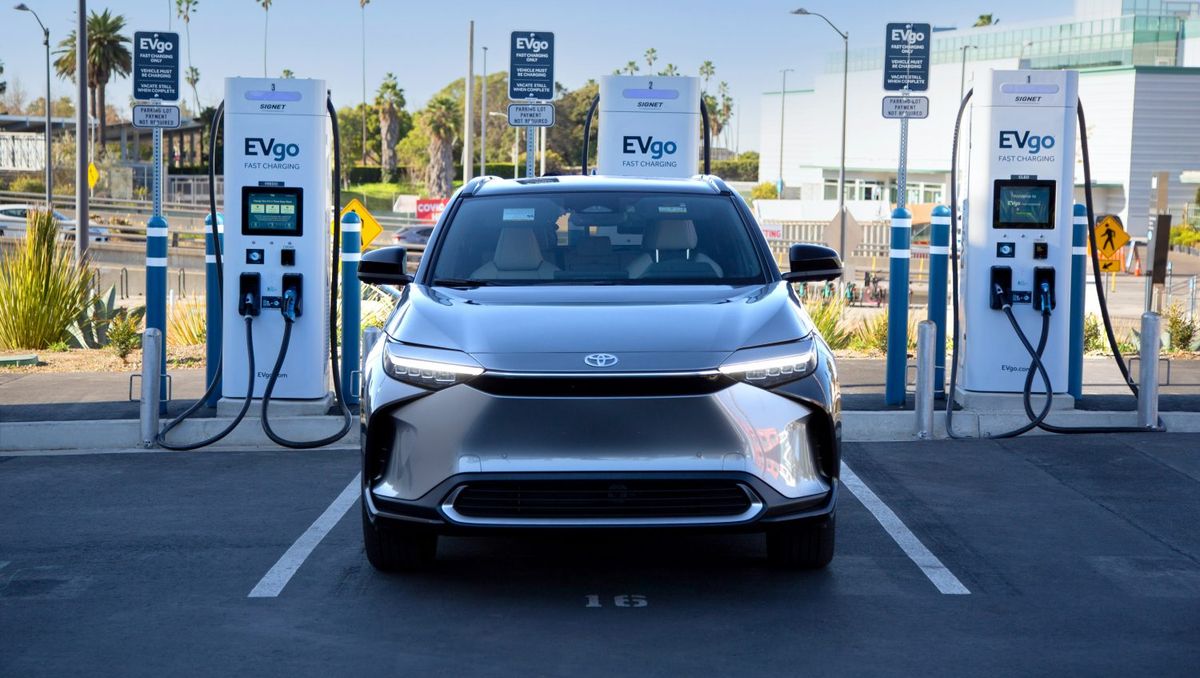- Toyota announced a significant shift in its EV production strategy, including adding three new batteries and completely reworking production lines.
- Toyota’s BEVs will be powered by solid-state batteries and NCM Monopolar, which has a range of 621 miles.
- Toyota, following in the footsteps of Tesla, will use gig casting and autonomous production lines abroad while simultaneously building a North American Battery Research Facility.
Toyota has yet to jump onto the electric vehicle bandwagon exactly. Toyota is keeping up with industry standards, but it remains committed to its hybrid segment. The brand has lost its former CEO, Akio Toyoda. He was a public EV skeptic. Former Lexus Branding Officer Koji Sato replaced Toyoda in a restructuring focused on electrification earlier this year.
Since Sato was appointed, Toyota has changed its stance on EVs and hinted at a new electric architecture. Toyota has gone one step further and confirmed this week that it will overhaul its production processes for electric vehicles.
A future battery that can fast-charge in 20 minutes
Toyota has revealed a technology roadmap that confirms its plans to launch new, more energy-dense, nickel cobalt-manganese lithium-ion batteries by 2026. The battery will range from 621 miles and a rapid-charge time of 20 minutes. The bZ4x batteries are reserved for high-end luxury vehicles and performance cars, but Toyota also has plans for lower-end models.
Toyota is also expected to release a high-performance version of a bipolar lithium-ion battery. This indicates that low-cost and high-performance electric vehicles are possible. The Ni-series bipolar lithium-ion batteries are also expected to be available in a high-performance version.
Solid-state batteries are now possible.
Toyota executives say that while such advancements have already been made, it is essential to continue innovating in the future. According to Toyota’s EV blueprint, solid-state batteries are the future. The company has accelerated its development of solid-state batteries partly because of “a technological advancement that overcomes the long-standing challenge of battery longevity.” Still, it also estimates a 20 percent increase in range with solid-state batteries.
It shows that Toyota knows how quickly it needs to a Toyota must redevelop and expand production facilities from a chassis- and battery point of view. Its future EV platform will use it, reducing sheet metal parts. Despite some early production issues, Tesla has successfully used this production method.
Automated mass production
Toyota has announced that it will not use conveyors to produce its future EV chassis. Instead, the company will use a self-propelling line. This will automate the entire process and allow mass-produced vehicles to be moved independently from one process to another, creating greater model flexibility in each plant. Toyota claims this method will reduce the number of workers required for production.
Toyota announced this week that it will be building a new research facility for batteries in Michigan. The Japanese brand is investing $50 million to build a North American R&D center in York Township, near Ann Arbor. This facility will focus on battery evaluation.
Given the current state Inflation Reduction Act (IRA) tax credit provisions establishing manufacturing roots in North America would be a good idea. A battery plant in North Carolina or a three-row electric SUV assembly line in Kentucky are both excellent options. Toyota claims the R&D center is also meant to serve North American customers better.
Looking at the Needs of Americans
Even though driving habits and charging needs vary from one state to another, the American approach has focused on a balanced balance between long-range performance and high performance. Understanding these nuances is essential for Toyota to produce a competitive product. The release states that the ability to examine the charging infrastructure in the United States firsthand is crucial for the company’s regional development.
Toyota’s approach towards EVs has changed rapidly, but the corporate culture that dominated its previous presentation is still evident. A large portion of Toyota’s presentation was dedicated to hydrogen and fuels. Toyota’s approach to fuel cell electric vehicles and hydrogen primarily focuses on commercial vehicles. However, Toyota has joined European manufacturers like Porsche in exploring biofuels.
Toyota states that certain countries and regions with high electricity demand, like Brazil or India, are prime candidates for e-fuel technologies.
The report says that Toyota is looking to the future and wants to ensure the right vehicle is deployed at the right place at the right moment. Unsurprisingly, Toyota has been the world’s best-selling automaker three years in a row. But, to make EVs popular, it will take more than better production and batteries. In the US, a balance between affordability and excitement will need to be struck.

